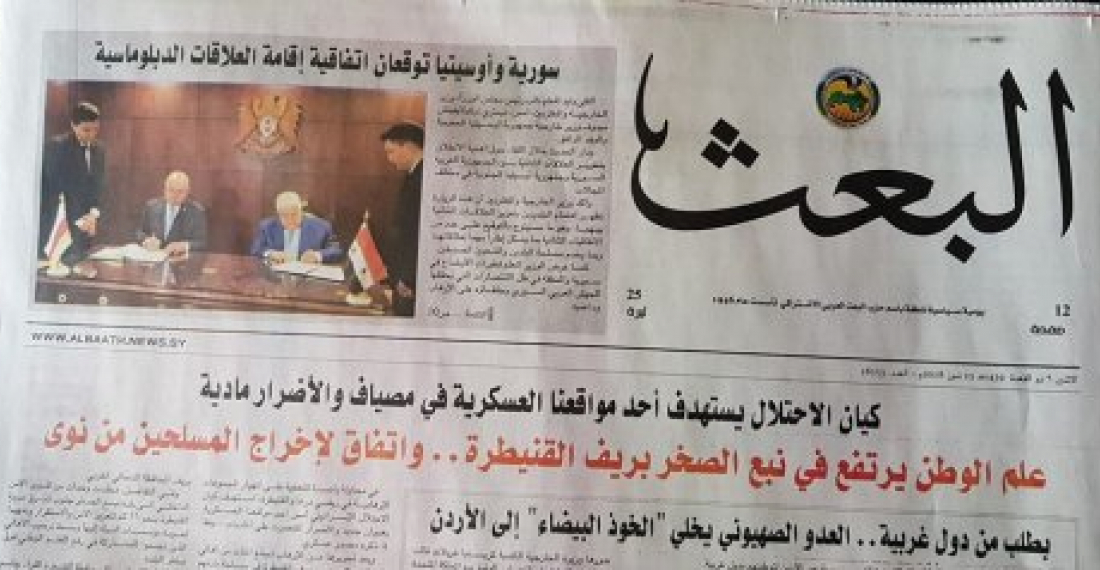The government of Syria and the authorities of the separatist authorities in South Ossetia have signed an agreement formally establishing diplomatic relations. Earlier, the Syrian government had announced that it became the latest in a handful of countries that recognised the independence of Abkhazia and South Ossetia.
The self-styled Foreign Minister of South Ossetia, Dimitri Medoev, signed the agreement establishing diplomatic relations at a ceremony in Damascus on Sunday (22 July), the Syrian news agency SANA reported. Syrian Foreign Minister Walid Muallem signed on behalf of the Syrian government.
According to SANA, other agreements aimed at boosting bilateral ties will be signed during Medoev's visit to Syria. One of the goals of Medoev's visit to Damascus is making preparations for an official visit of South Ossetian President Anatoly Bibilov, which is expected to take place in the near future, according to the agency.
On Monday, Medoev posted a picture of the front page of the newspaper "Al Baath", the official organ of the ruling Arab Baath Sociualist Party, showing the signing ceremony.
The territory of South Ossetia seceded from Georgia in 1992, and in 2008 was officially recognised as an independent country by Russia. Only a handful of other countries in Latin America and the Pacific have followed the Russian example. The rest of the international community still recognise South Ossetia as part of Georgia.
source: commonspace.eu






